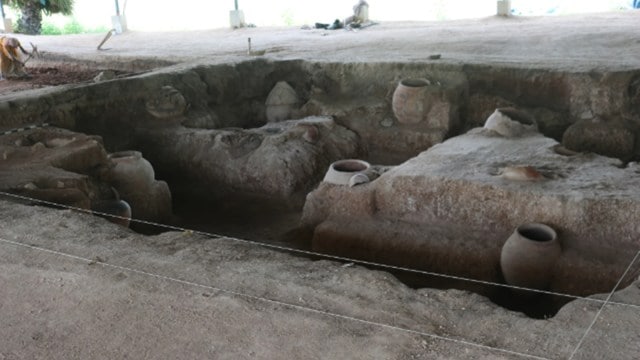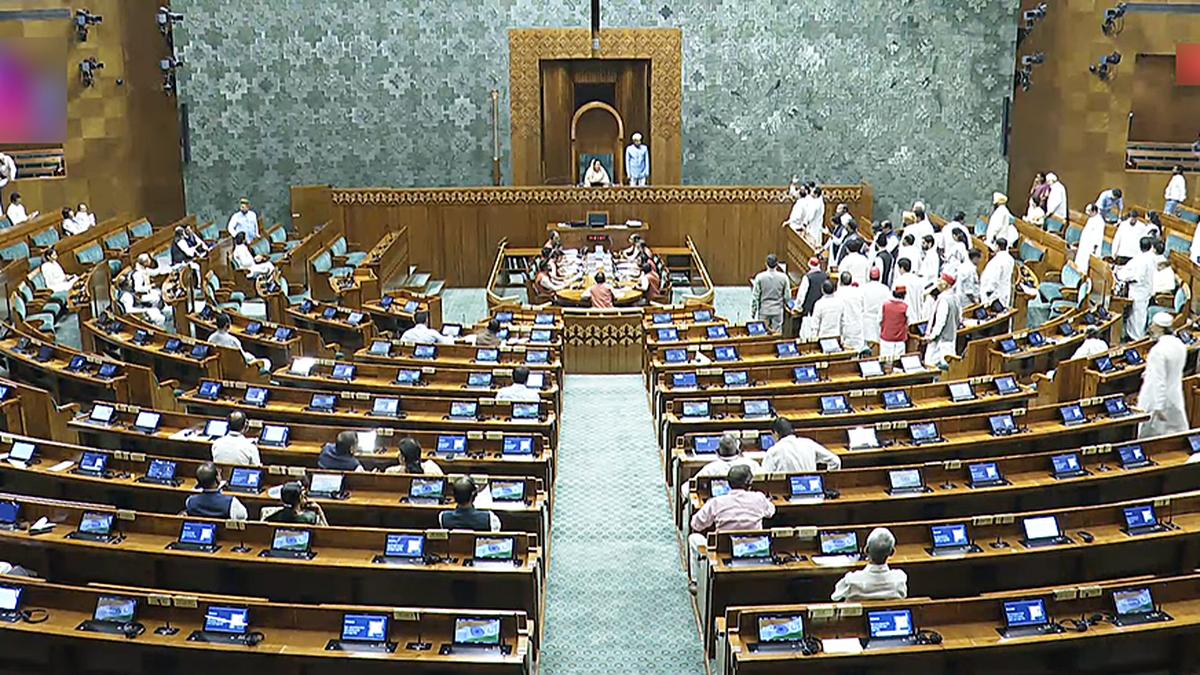ARTICLE AD BOX
 ASI excavations at Keezhadi in Tamil Nadu have unearthed evidence of a sophisticated urban society. (Image source: Gokul Subramaniam/ File)
ASI excavations at Keezhadi in Tamil Nadu have unearthed evidence of a sophisticated urban society. (Image source: Gokul Subramaniam/ File)
The Archaeological Survey of India (ASI) has not requested any “revised report” on the Keezhadi (or Keeladi) excavations in Tamil Nadu, the Centre informed Parliament Monday, but said the report is “under review” and as per suggestions of experts the nomenclatures of the three periods mentioned in it “require change”.
Culture Minister Gajendra Singh Shekhawat said the time bracket of 8th-5th century BCE given for Period 1 in the report was “not justified at all”. “For the earliest period in the present state of our knowledge we can, at the maximum, suggest it originates somewhere in pre-300 BC,” he said in an annexure attached with the response to a question by DMK MP T Sumathy.
Keezhadi is an ancient site in Tamil Nadu’s Sivaganga district, about 12 km from Madurai. Over a decade ago, Amarnath Ramakrishna, ASI’s then Superintending Archaeologist, led excavations at the site that unearthed evidence of a sophisticated urban society.
According to the Keezhadi report, carbon dating had revealed the objects to be over 2,160 years old, corresponding to the Sangam era in Tamil history. It classified the site’s history into three periods — Pre-Early Historic (8th-5th century BCE), Mature Early Historic (5th-1st century BCE) and Early Historic (1st century BCE-3rd century CE).
The report triggered a controversy between the DMK-led Tamil Nadu government and the NDA-ruled Centre, after the ASI, which comes under the Union Ministry of Culture, asked Ramakrishna to review his report. The DMK saw this as an attempt by the Centre to pressure Ramakrishna to “change” his findings.
DMK MP Sumathy had asked the Ministry if the Keezhadi report prepared was officially reviewed by the Government after submission in June 2025, seeking details of the specific deficiencies cited by the Government or ASI leading to its rejection.
In his reply, Shekhawat said: “Keezhadi excavation has been conducted under the aegis of ASI and a report of lead archaeologist is under review. The comments of experts have been shared with the lead archaeologist, which are still to be finalised.” However, the minister added, “there is no practice of rejecting a report”.
Story continues below this ad
In the annexure, which details excerpts from experts’ observations, on the basis of which Ramakrishna has been asked to review the report, Shekhawat said the “missing details” require the village map to be redrawn and the cultural period to be reoriented as specified, among other things.
“As per experts suggestion: a) the nomenclatures of the three periods require change; b) the time bracket of 8th century BC to 5th century BCE given for Period 1 is not justified at all; c) The other two periods should also be determined on the basis of scientific AMS dates and the material recovered in view of stratigraphical details. For the earliest period in the present state of our knowledge we can, at the maximum, suggest that it originates somewhere in pre-300 BCE…” the annexure said.
On June 10, Shekhawat had said further studies were needed to validate the ASI findings on an ancient civilisation at Keezhadi.
In response to another question by DMK MP Dayanidhi Maran, the Ministry informed Parliament Monday that ASI has not requested any “revised report” on the site from the Tamil Nadu State Department of Archaeology.
Story continues below this ad
Maran also asked details of the “additional excavation phases and funding support” by ASI for the tenth phase of Keezhadi excavation that began on June 18, 2024, which has already “identified six terracotta pipelines and various urban settlement structures”. To this, Shekhawat replied: “Question does not arise.”
Divya A reports on travel, tourism, culture and social issues - not necessarily in that order - for The Indian Express. She's been a journalist for over a decade now, working with Khaleej Times and The Times of India, before settling down at Express. Besides writing/ editing news reports, she indulges her pen to write short stories. As Sanskriti Prabha Dutt Fellow for Excellence in Journalism, she is researching on the lives of the children of sex workers in India. ... Read More



.png)
.png)
.png)

























 English (US) ·
English (US) ·